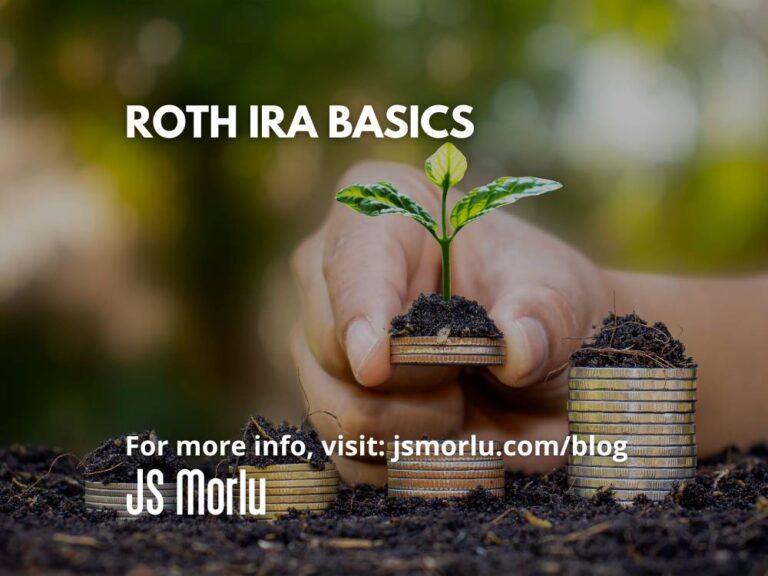When it comes to planning for retirement, the choice of the right savings vehicle can significantly impact your financial well-being. One popular option that has gained traction over the years is the Roth IRA, celebrated for its ability to generate tax-free retirement income. In this article, we’ll delve into the nuances of Roth IRAs, comparing them to traditional IRAs, and help you determine if this investment strategy aligns with your financial goals.
Understanding the Roth IRA Advantage
Roth IRAs have become a staple in retirement planning due to their unique tax benefits. Unlike traditional IRAs, where immediate tax deductions are possible, Roth IRAs offer a deferred tax advantage. The trade-off involves forgoing an immediate tax benefit in exchange for tax-free withdrawals in the future, both at the federal and potentially state levels.
Key Differences from Traditional IRAs
A traditional IRA provides an immediate tax benefit by allowing eligible individuals to deduct their contributions. However, taxes are levied on both deductible contributions and earnings when funds are withdrawn in the future. Roth IRAs, on the other hand, don’t provide an immediate tax benefit – contributions cannot be deducted. Instead, the tax advantage materializes during qualified withdrawals, creating a tax-free income stream during retirement.
Navigating the Roth IRA Landscape
To fully harness the benefits of a Roth IRA, it’s essential to understand the rules and options available:
- Qualified Withdrawals: Accessing tax-free income from a Roth IRA is contingent upon meeting specific criteria. Hold the account for at least five years and either reach the age of 59½ or experience another qualifying event.
- Funding Options: There are three primary ways to fund a Roth IRA:
- Annual Contributions: Individuals with earned income and modified adjusted gross income within specified limits can make yearly contributions.
- Conversion from Traditional IRA: Transitioning from a traditional IRA to a Roth IRA is an option, with the conversion amount usually considered taxable income for the year.
- Conversion from Retirement Plan Account: Similar to a traditional IRA conversion, moving funds from a retirement plan account to a Roth IRA may trigger taxable income.
Understanding Roth Conversions
Converting assets to a Roth IRA, particularly from a traditional IRA, involves careful consideration. The amount converted is generally included in your income for the conversion year, except for any non-deductible contributions. This means regular income taxes will apply to deductible contributions and earnings.
Example: If you convert a traditional IRA valued at $250,000, with $100,000 being non-deductible contributions, you’ll need to report $150,000 as income for the conversion year.
Strategic Considerations for Roth Conversions
A Roth conversion may be a strategic move if:
- You anticipate being in a higher tax bracket during retirement.
- Your income is too high for regular Roth contributions, prompting consideration of a traditional IRA contribution followed by conversion.
Is a Roth IRA Right for You?
Determining the suitability of a Roth IRA involves evaluating various factors:
- Your current and future income tax rates.
- The timing and necessity of withdrawals during retirement.
- Applicable state tax laws.
- Whether you plan to make regular contributions or consider asset conversions.
Making Informed Decisions
Before embarking on the Roth IRA journey, it’s crucial to grasp the potential tax consequences and fully understand your options. Analyze your financial situation, weigh the long-term benefits, and consider consulting a financial advisor to ensure your retirement strategy aligns with your unique circumstances.
To enhance your understanding of Roth IRAs, we’ve created a video that provides a visual walkthrough of the key concepts discussed in this article.
JS Morlu LLC is a top-tier accounting firm based in Woodbridge, Virginia, with a team of highly experienced and qualified CPAs and business advisors. We are dedicated to providing comprehensive accounting, tax, and business advisory services to clients throughout the Washington, D.C. Metro Area and the surrounding regions. With over a decade of experience, we have cultivated a deep understanding of our clients’ needs and aspirations. We recognize that our clients seek more than just value-added accounting services; they seek a trusted partner who can guide them towards achieving their business goals and personal financial well-being. Talk to us || What our clients says about us


